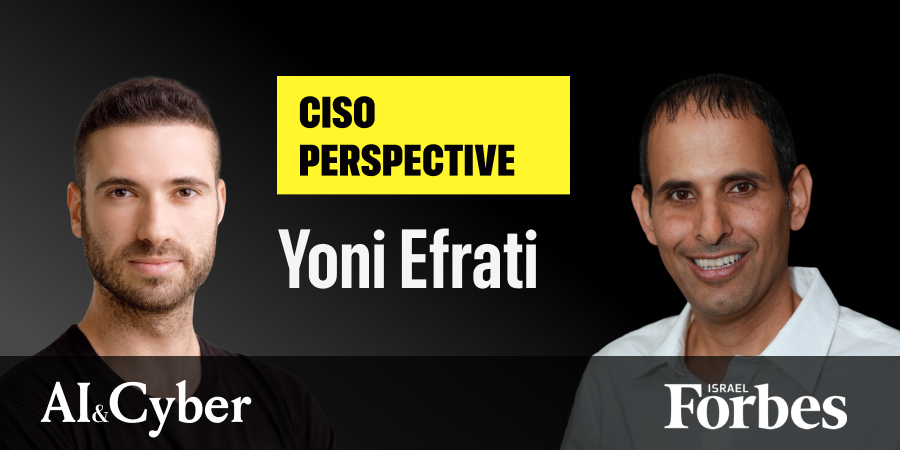The cyber threat to financial systems isn’t theoretical—it’s existential. That’s what Yoni Efrati made clear when we spoke about AI’s growing role in digital crime and defense. “If one financial organization is hit,” he told me, “the entire sector suffers. We’re no longer protecting data—we’re protecting the economic stability of millions.”
Yoni’s perspective comes from the frontlines. A veteran cybersecurity leader overseeing national-scale financial infrastructure, he’s watched firsthand as AI changed the rules of engagement. “In the past, a cybercriminal needed physical presence—courage, tools, and access. Today? They just need AI and someone to fool.”
It’s a shift I’ve seen up close at Clarity, where attackers now use deepfakes and generative phishing to bypass every human instinct. The cost of launching a sophisticated cyberattack has collapsed. The barrier to entry has disappeared.
And yet, many organizations still rely on slow, reactive defense. “Legacy security models can’t keep up,” Yoni said. “We need to detect faster. But more than that—we need to predict.”
This is where AI becomes essential. Not as a feature—but as the foundation. Like Dorit Dor at Check Point and Elik Etzion at Elron told me, modern cybersecurity is no longer about building walls. It’s about running alongside the attacker—and getting there first.
Yoni emphasized the need for automation and speed: “AI should empower security teams by eliminating the manual work—routine detection, response, and remediation. Every second counts.”
But tech isn’t enough. Culture matters just as much. “Cybersecurity is fundamentally about people,” he said. “When employees understand their role, they become your strongest defenders—not your weakest links.”
That insight reminded me of what Nir Rothenberg told me: the real transformation in cybersecurity isn’t in the tooling—it’s in the communication, collaboration, and clarity across the org. Yoni sees that too, especially in highly regulated sectors like finance, where trust is everything.
What stood out most from our conversation was his clarity on the cost of standing still. “Organizations that stick to old methods will become irrelevant,” he warned. In the AI era, security posture isn’t a luxury. It’s survival infrastructure.
For CISOs, the mandate is urgent: evolve fast, integrate AI at the core, and build a culture that’s ready. Not later—now.
Michael Matias is the CEO and Co-Founder of Clarity, an AI-powered cybersecurity startup backed by venture capital firms including Bessemer Venture Partners and Walden Catalyst. Clarity develops advanced AI technologies protecting organizations from sophisticated phishing attacks and AI-generated social engineering threats, including deepfakes. Before founding Clarity, Matias studied Computer Science with a specialization in AI at Stanford University and led cybersecurity teams in Unit 8200 of the Israel Defense Forces. Forbes Israel recognized him early on, naming him to the exclusive 18Under18 list in 2013 and the Forbes 30Under30 list thereafter. Matias authored the book Age is Only an Int and hosts the podcast 20MinuteLeaders.





